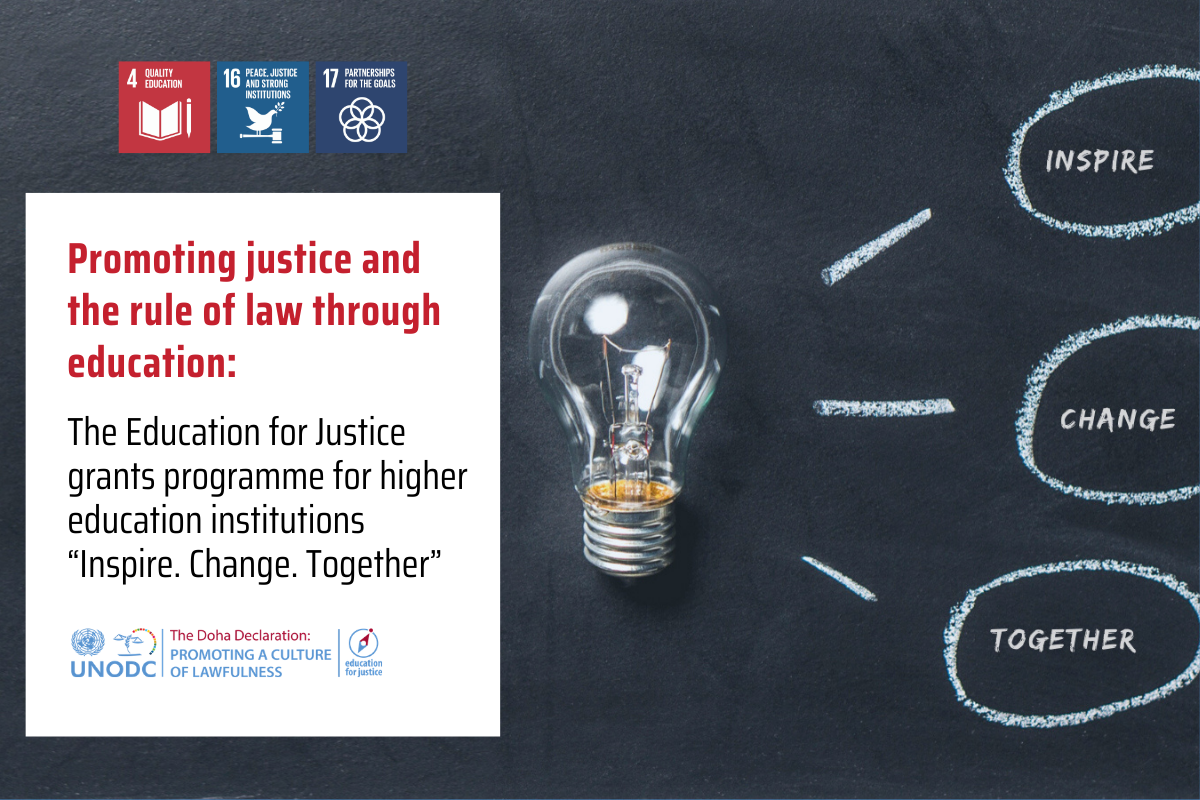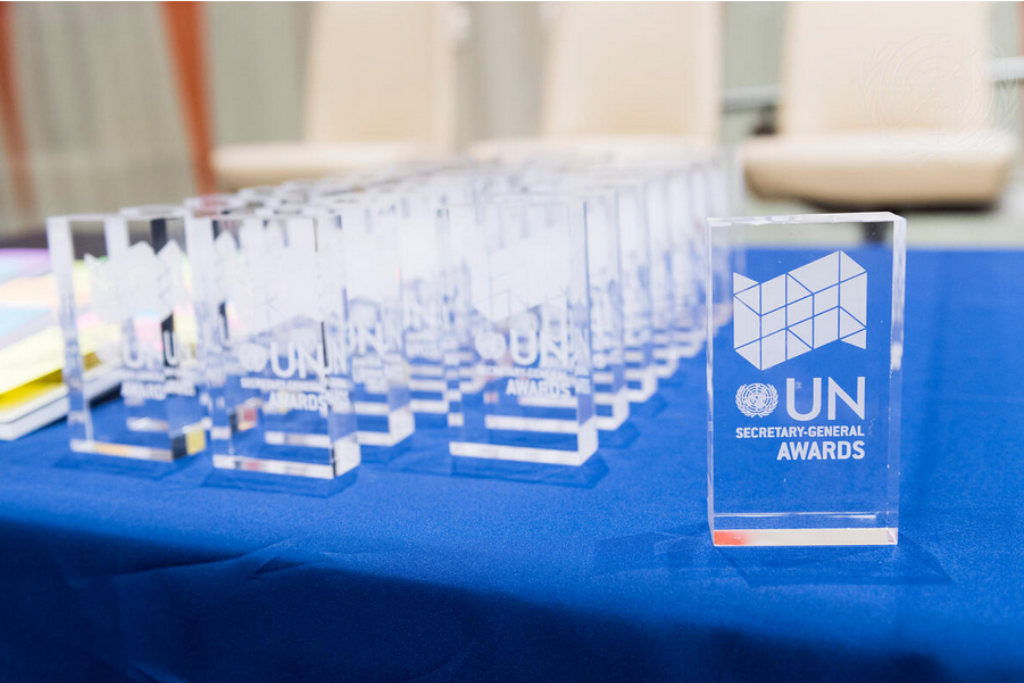Education as a tool to preventing crime and promoting a culture of lawfulness
13 February 2017 - The integration of crime prevention and criminal justice into all levels of education is essential in building long-term approaches to countering crime and violence. It is also critical in ensuring that the rule of law is respected from an early age in order to build safe and prosperous societies for all. Recognizing this, the Doha Declaration, adopted at the 13th United Nations Congress on Crime Prevention and Criminal Justice, highlighted the fundamental importance of universal education for children and youth to prevent crime, terrorism and corruption and promote sustainable development.
To put the Doha Declaration into reality, an ambitious Global Programme was launched last year with the financial support of the State of Qatar, which includes an innovative and comprehensive educational initiative: 'Education for Justice' (E4J).
As part of the development of E4J, a series of Expert Group Meetings are currently underway in Vienna, bringing together experts with a variety of backgrounds from across Governments (including Ministries of Education), civil society, academia, the private sector and international organizations, combining a rich spectrum of experiences. Their areas of expertise range from education (teaching and curriculum development) to UNODC's mandate areas (corruption, terrorism, criminal justice, and organized crime, including cybercrime) With a focus on three levels of education - primary, secondary and tertiary - the meetings are being held over the course of February and March.
At the primary level, E4J aims to develop and support interactive and innovative tools to foster integrity and skills from an early age for solving basic moral and ethical dilemmas; at the secondary level, the initiative will promote an understanding of the basic concepts that lie at the core of UNODC's work; while for universities, teaching and research on issues related to the UNODC-mandated areas will be facilitated and promoted, including corruption, organized crime, trafficking in persons, smuggling of migrants, terrorism, cybercrime, criminal justice and arms trafficking, as well as on integrity and ethics.
Noting this, Candice Welsch from UNODC's Corruption and Economic Crime Branch, opened the primary education Expert Group Meeting: "Education is broadly recognized as a tool to promote peace, justice and equality for sustainable development. It has a major role to play in shaping the values of future generations, building collective consciousness, reshaping societal preferences and complementing this with the necessary skills to enact these values." She also elaborated how E4J is connected to the Sustainable Development Goals, specifically SDG target 4.7, which calls for Member States to engage in education on the promotion of a culture of peace and non-violence.
The secondary level event was opened by John Brandolino, UNODC Director of the Division for Treaty Affairs, who conveyed the importance of building resilience among children and youth through carefully targeted and comprehensive educational programmes that actively involve young people and all relevant stakeholders.
"E4J focuses on certain aspects of education that are meant to cultivate critical thinking skills among youth and build an awareness that crime is bad and harmful to society. This, in turn, should inspire individuals to abstain from criminal activities and also instil support for societal efforts to prevent and address all types of crime."
Additional information:


